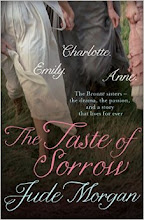I have just moved into a Grade II listed cottage, built in the sixteenth and seventeenth centuries, held up with beams from ships that sailed with the Mary Rose. No wall is straight, no doorway high enough for a man to pass through without stooping, no window large enough to let in more than a teaspoon of light. Pear tree branches scrape at the glass at night, wind howls down the chimney and through gaps in the ancient doors and windows, and the floorboards creak and groan continuously.
And so, alone in my cottage, I decided to read a ghost story.
Dark Matter is the tale of a doomed arctic expedition which results in one man, alone with his diary and a pack of huskies, living in perpetual night at the northern end of Svalbard (Spitsbergen at the time). He sees things in the snow and on the rocks, but more significantly, he feels things - horror, fear, malevolence, the things that make the hair on the back of your neck stand up without tangible explanation.
Michelle Paver writes well, though with a fondness for simple sentences that I found slightly childish (she is best known for her children's series beginning with Wolf Boy, after all). It is a book about place, which those of you who read ...Lamp - and Book regularly will know is my particular love, and it is indeed even about the very place I most dream of visiting one day.
Dark Matter is atmospheric, characters are well-drawn and likable enough where they need to be, though I might also suggest a little bland, and it is suggestively creepy enough to count as a ghost story. But did it do what ghost stories should do above all else, and scare me? Did I dread turning the light out at night? Did I see things in the corner of my eye, and fear what might be standing outside my bedroom door when I opened it? No.
I could make some suggestions as to why not - primarily, for me, it is too definite in its adamancy that what Jack experiences is a 'real' ghost, and way too simplistic in its reveal of the reason for the haunting. Far more interesting, surely, is the potential ambiguity that comes of the psychological trauma of being alone in 24 hour darkness in a landscape so brutal? The idea that even Jack could not be sure that what he saw was real, rather than a trick of his mind, would have made this more powerful. In all ghost stories, it is the not-knowing that is the most frightening aspect.
Although it is not being marketed as a children's book, I would recommend this to teenagers rather than adult connoisseurs of the genre. It is short, and enjoyable from the point of view of someone for whom experiencing first-hand this landscape and the Aurora Borealis is the number one dream, but is most certainly not terrifying. Not even to a young woman reading it alone in a 400 year old cottage in the Peak District...
Subscribe to:
Post Comments (Atom)


1 comment:
Thanks for the write up. I picked this up from my bookshop (that was closing down) for a few dollars and was going to read it but chose another instead. I'll definitely make it the next on my list now. :)
Post a Comment